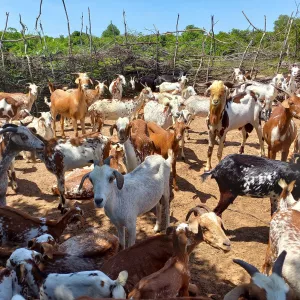New vaccine to protect Mali’s sheep and goats against peste des petits ruminants
A recent workshop in Mali set the stage for a significant project tackling peste des petits ruminants, a devastating animal disease which hurts livestock economies and threatens food security worldwide, especially for families reliant on sheep and goats. The Technologies for African Agricultural Transformation (TAAT) livestock compact program, funded by the African Development Bank, will tackle this highly contagious disease

New vaccine to protect Mali’s sheep and goats against peste des petits ruminants
A recent workshop in Mali set the stage for a significant project tackling peste des petits ruminants, a devastating animal disease which hurts livestock economies and threatens food security worldwide, especially for families reliant on sheep and goats.
The Technologies for African Agricultural Transformation (TAAT) livestock compact program, funded by the African Development Bank, will tackle this highly contagious disease which impacts millions of sheep and goats globally, ultimately improving the lives of Malian herders and boosting the country’s vital small ruminant sector.
The disease has a concerning global reach, and its economic impact is estimated at 1.2-1.7 billion United States dollars annually.
To combat this threat, a global effort is underway to eradicate peste des petits ruminants by 2030.
The TAAT program is introducing a new weapon to Mali’s fight against peste des petits ruminants: a thermotolerant vaccine.
This vaccine is being developed through a public-private partnership between the International Livestock Research Institute (ILRI), the Central Veterinary Laboratory (Mali) and Hester Biosciences (India).
Unlike traditional peste des petits ruminants vaccines that require cold storage, the new vaccine can withstand high temperatures, making it ideal for widespread vaccination in Africa’s hot regions and remote areas.
This thermostability will significantly reduce program costs, improve vaccination effectiveness and, ultimately, empower Malian communities.
With a goal of protecting 1 million sheep and goats across 35,000 households in central Mali, this initiative not only safeguards livestock but also contributes to increased income, food security and climate change adaptation for these families.

